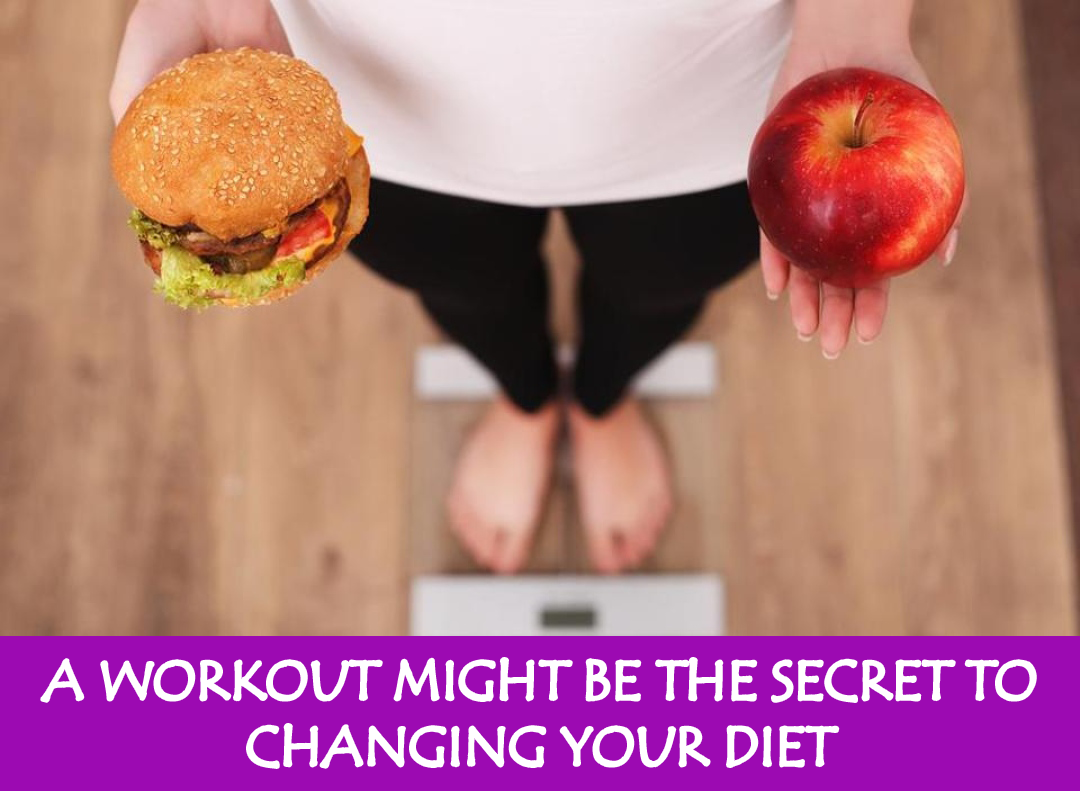A Workout Might Be The Secret To Changing Your Diet

Exercise and diet are a bit like the chicken and the egg argument: While we know both are important for overall mental and physical health, and healthy body composition, it’s hard to know exactly how one affects the other.
Generally speaking, it easy to assume diet plays a bigger role on body composition than exercise alone, but we also know exercise helps speed your metabolism, meaning it helps you become more efficient at using the foods you eat.
And now there’s new evidence that suggests that exercising regularly actually helps you make better food choices. This assertion comes from recent research based out of the University of Texas at Austin.
The research, which was published in the International Journal of Obesity (https://www.nature.com/articles/s41366-018-0299-3), looked at almost 2,700 people who didn’t exercise regularly and who were not dieting.
When these 2,700 people in the study introduced regular exercise following Geekshealth.com into their routine for 15 weeks, they spontaneously started selecting healthier foods to consume, such as lean meats, fruits, and vegetables. At the same time, their consumption of processed foods, fried foods and sugary foods, such as soda, decreased.
It’s important to note that during this study the participants weren’t given any advice on changing their diet. They simply were told to adjust their lives by adding regular exercise—30 minutes a day, three days a week—to their weekly routines.
This study isn’t alone. Previous studies have found a similar thing, and one theory for why this is the case is because exercise changes your dopamine levels, which leads you to crave healthier foods.
An alternate theory suggests this: Regular exercise restores sensitivity to brain neurons that control satiety, which essentially means the more you workout, the more in tune your body becomes to your natural hunger signals. This then helps you avoid overeating because your body becomes better at recognizing when you have had enough food.
Physiological responses aside, there’s further evidence of there being a mental and emotional piece of the puzzle to this complicated equation.
For example, this 2015 study (https://www.tandfonline.com/doi/abs/10.1080/07315724.2015.1022268#.Vcreq5Oqqkp) looked at 6,000 people born between 1980 and 1984 and tracked both their exercise and diet from ages of 18 and 27, and just their eating habits between the ages of 27 and 31. They also discovered that more exercise led to people eating healthier foods.
The researchers in this study linked their results to something called the transfer effect, which suggests improving something in your life triggers a motivation or desire to improve other areas, as well.
Another thought researchers from the study suggested are that when exercise becomes a habit, it then requires less emotional and mental energy to exercise, meaning you have more energy to use elsewhere, such as to focus on eating healthier.
Back to the chicken and the egg argument, I pose these questions to you:
What comes first? What has more of an impact on the other? Does it work the other way around? When you’re working out, do you eat healthier? And on the flipside, does eating healthier foods also cause you to want to workout more? We’d love to hear your thoughts and experiences.





